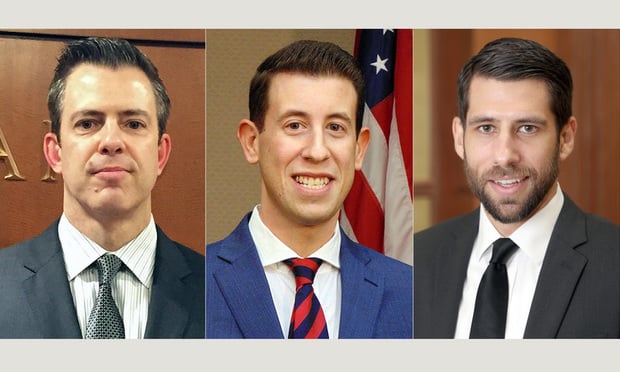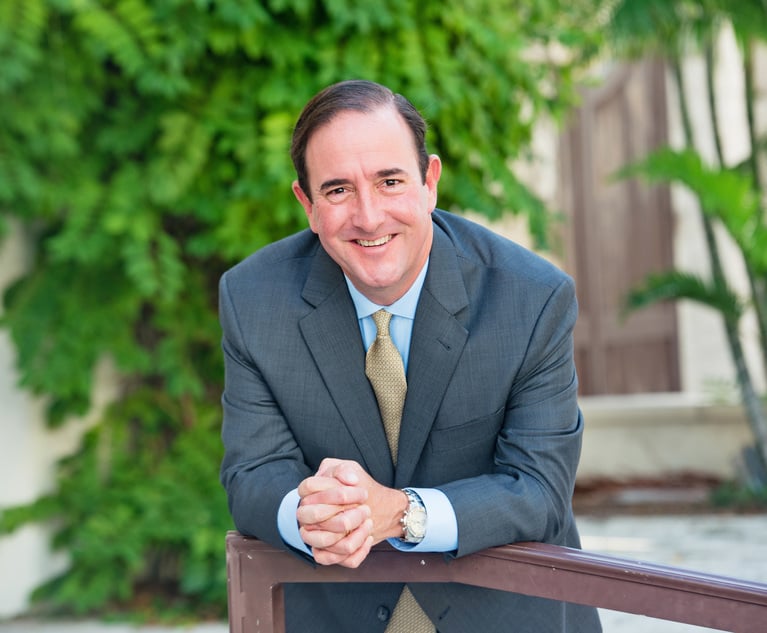Bryan Hofeld, David Silverman and Zane Berg of Fort Lauderdale’s Schlesinger Law Offices secured a $6.5 million jury verdict for a 19-year-old woman who was severely injured on a Broward carnival ride as a child.
Elizabeth Frank was 11 in December 2011 when she went on a family trip to the Seminole Indian Reservation’s annual Christmas carnival. But festivities came to an abrupt end after Frank fractured her skull and broke both legs on board a ride called the “Psycho Swing,” which swings participants in high-speed, 360-degree loops.
This content has been archived. It is available through our partners, LexisNexis® and Bloomberg Law.
To view this content, please continue to their sites.
Not a Lexis Subscriber?
Subscribe Now
Not a Bloomberg Law Subscriber?
Subscribe Now
LexisNexis® and Bloomberg Law are third party online distributors of the broad collection of current and archived versions of ALM's legal news publications. LexisNexis® and Bloomberg Law customers are able to access and use ALM's content, including content from the National Law Journal, The American Lawyer, Legaltech News, The New York Law Journal, and Corporate Counsel, as well as other sources of legal information.
For questions call 1-877-256-2472 or contact us at [email protected]


 L-R: Bryan Hofeld, David Silverman and Zane Berg of Schlesinger Law Offices in Fort Lauderdale. Courtesy photos.
L-R: Bryan Hofeld, David Silverman and Zane Berg of Schlesinger Law Offices in Fort Lauderdale. Courtesy photos.





